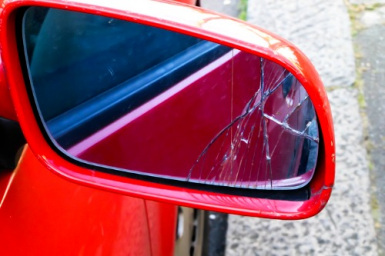
The Insurance Fraud Bureau (IFB) and City of London Police’s Insurance Fraud Enforcement Department (IFED) are warning drivers to watch out for a new type of crash for cash scam, dubbed clip for cash, which has been spreading across the country.
Unlike traditional crash for cash scams where fraudsters cause a collision, this involves scammers accusing drivers of clipping their wing mirror, before becoming threatening and demanding cash up front.
IFB and IFED are actively investigating over 40 incidents where innocent people appear to have been targeted. However, due to a lack of public awareness of the issue, potentially hundreds of cases are going unreported. Drivers are being urged to look out for the signs.
Ursula Jallow, Director at IFB, said:
“Clip for cash is an increasing threat to drivers. These fraudsters trick innocent motorists into thinking they’ve caused genuine damage and then apply pressure tactics to get victims to hand over cash. As there is little awareness of this new fraud type, it means drivers are more susceptible to falling victim. We’re urging everyone to look out for the warning signs of these wing mirror stings and report it to Cheatline and Action Fraud.”
Detective Inspector Philip Corcoran at IFED, said:
“Crash for cash scams pose a real safety risk to the public, so it is concerning to see these fraudsters evolve their tactics to target more unsuspecting drivers. Nobody should pressure you into handing over money at the scene of a collision. If you suspect you have fallen victim to this scam, report it to IFB’s Cheatline and to Action Fraud.”
How does the scam work?
First detected in London in 2021, IFB and IFED have since seen the clip for cash scam spread to other parts of the country, including in the South-West and Wales.
The con nearly always takes place on a residential road. As the victim drives by, the fraudster is parked in their car on the left-hand side and throws an object such as a large rock, at the side of the victim’s car to make an impact sound.
The startled driver is soon flashed by the fraudster’s car to get them to stop, before being accused of clipping their wing mirror (which has already been damaged).
The fraudster demands they hand over cash instantly – which could be as much as £200 – or pressures them into visiting a cashpoint. The fraudster is reluctant to pursue any claim through the insurer. In some instances where the victim has not agreed to handing over money, the culprit has become physically intimidating.

